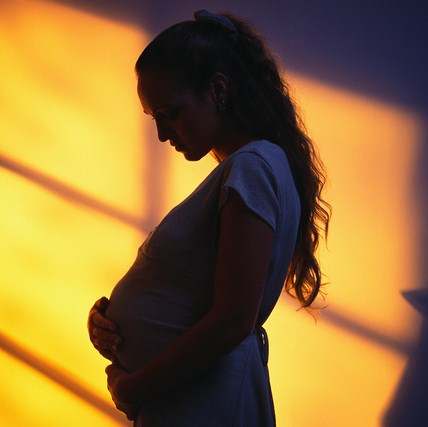
If you are considering placing your child for adoption, you need to understand that you have specific legal rights. These rights vary according to the State in which you live. Every birth parent should be represented by a lawyer to make sure their rights are understood and protected. The birth parent chooses their own lawyer. If the birth parent(s) has no lawyer or needs assistance finding a lawyer, the adoption agency with which she/they are working will refer the birth parent(s) to qualified lawyers in their community. Most lawyers who specialize in adoption are members of the American Academy of Adoption Attorneys, a national professional organization for adoption lawyers. The adoptive family and the adoption agency will also have lawyers to represent their best interests. In New York State, the birth parent(s), adoptive parents and adoption agency cannot share the same lawyer. Each lawyer will inform and protect the rights and best interests of the party they are representing. The cost for each lawyer is the responsibility of the adoptive parents. The birth parent will not pay for their legal counsel (even if they decide to parent the child and not to place the child for adoption).
Every State in the United States has different laws, regulations, and case laws that determine the rights of birth parents. A birth parent needs to seek proper legal counsel to ensure her/his/their rights are properly represented in the State in which they live.
In New York State, all agency adoptions have common legal processes. No birth parent can surrender or relinquish their custodial rights to their child until after the child’s birth. Once the child arrives, the birth parent(s) may choose to surrender custody of child by signing a Surrender Instrument or Conditional Surrender Instrument. The custody of the child will then be transferred to the placing adoption agency. The adoption agency will retain custody of the child and be responsible for his/her welfare until the adoptive parents finalize the child’s adoption in a New York State court. However, after the birth parent surrenders custody of the child to the agency, most adoption agencies will immediately place the child with the adoptive family and provide the family with physical custody of the child. Thus, the child will be discharged from the hospital into the arms of the adoptive family. The adoption agency will supervise the family (via home visits and phone calls) to ensure the safety and well-being of the child until the adoptive family finalizes the child’s adoption. The adoptive family may petition the court to finalize the child’s adoption 90 days after the child was placed in their family. When the court finalizes the child’s adoption, the legal custody of the child is transferred to the adoptive family.
A full exploration of New York State adoption law, regulations, and case law is beyond the scope of this blog. In addition, each birth parent’s situation and adoption plan is unique and thus will need individualized legal counsel from an adoption lawyer.
Many birth parents are curious about three major legal questions. Below, Kevin P. Harrigan, Esq., a New York State adoption lawyer, answers the most common birth mother questions:
Question: Do I have to go to court? No, not necessarily. For birth parents who are considering adoption as an alternative to parenting, the legal process begins with the voluntary termination of parental rights (aka surrender or relinquishment), and many times, this is done without the birth parents going to court. Following the child’s birth, the birth parent(s) may choose to sign either a Judicial Surrender Instrument (in the court) or an Extra-Judicial Surrender Instrument (outside of court).
The vast majority of surrenders are executed outside the courtroom (extra-judicial), in most cases before the birth mother leaves the hospital, or shortly thereafter. Extra-judicial surrenders are signed in the presence of the birth parent’s lawyer and witnessed by an adoption agency worker. The birth parent(s) do not appear in court.
Question: Do I need to involve the birth father? Ideally, the goal of every adoption is to have both the birth mother and the birth father be part of the adoption plan. In reality, the birth father is often not an active participant. The birth mother is not legally obligated to inform the birth father that she is pregnant. She does not have to identify him in a sworn statement. She cannot, however, intentionally hide from him or lie to him about the pregnancy.
State laws, regulations and case laws establish which birth fathers must consent to an adoption as well as those who must receive notice of the adoption proceeding. A birth father who is currently married to the birth mother must always consent to the adoption. If the husband is not the biological father of the child the husband can deny paternity. For a birth father who is not married to the birth mother, in general, the Courts look to the six-month period immediately preceding the placement of the child for adoption and ask if the unwed birth father has sufficiently shown his intention to accept parental responsibility. A birth father’s acknowledgment of paternity does not automatically entitle him to notice or content in the adoption proceeding.
New York State law defines birth fathers who must receive notice of the adoption proceeding. Among these are birth fathers who are named on the birth certificate or whom the birth mother has named in a sworn statement; birth fathers who have initiated paternity proceedings or filed with the putative father registry; birth fathers who have supported the birth mother both financially and emotionally during the pregnancy; or birth fathers who have paid hospital, medical, or nursing expenses for the birth mother while holding themselves out to be the child’s father. A birth father who meets these criteria is entitled to receive notice when an adoptive proceeding is initiated. He is then given an opportunity, if desired, to appear before the court to challenge the adoption plan and assert his rights as a parent. At this point, the birth father must demonstrate to the court that he is personally capable of parenting and supporting the child.
Birth father rights are complex and vary by State. It is important that a birth mother fully explore her rights and the rights of her child’s birth father with her lawyer.
Question: Am I permitted to have contact with my child after the adoption is finalized? Yes! A Post Adoption Contact Agreement details the arrangements between the birth parent(s) and adoptive parents for on-going contact to update the birth parent(s) on the child’s progress and development. Typically a Post Adoption Contact Agreement provides for the sending of periodic letters and pictures of the child to the birth parent(s) on an agreed upon schedule (e.g. twice a year). An Agreement may also provide for scheduled visits between the birth parent(s), the adoptive parents, and the child. The frequency of these contacts depends on the wishes and consensus of the birth family and adoptive family. The Post Adoption Contact Agreement sets forth the minimum required contact between the birth and adoptive families; many families exceed this legally binding contact.



Let Us Know What You Thought about this Post.
Put your Comment Below.